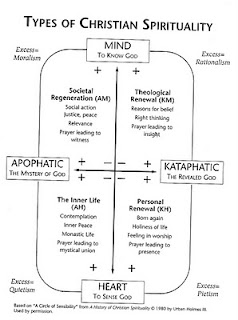Fragmentation... 1/3
...officers were sent into areas of brokenness not to work the area over with the expectation of establishing a structured all singing and dancing church, but to love and serve the area...
Several years ago and in the arrogance of a fast disappearing youth I emailed the Territorial Leader of TSA and asked what was TSA's strategy for inner city and communities of deprivation. It went something along the lines that nothing has really intentionally replaced the 'Goodwill' centre system, where officers were sent into areas of brokenness not to work the area over with the expectation of establishing a structured all singing and dancing church, but to love and serve the area. The inner cities of the UK were littered with such centres all working close with established Salvation Army corps. Somehow the 'Goodwill' lost it's focus; centres were closed as TSA seemingly retreated from inner city Britain.I got a gracious answer and was asked to be part of an initial discussion regarding the establishment of what was to be called 'The Strategic Framework'. Unfortunately, but predictably, the 'The Strategic Framework' was regarded with suspicion and was misunderstood which made it easy to shelve.The nearest, I think, TSA got to a beginning of a strategy for the inner city was lost.
The strength of the document was not given the recognition it deserved; one particular section written by a friend it captured something of what I was looking for as an Officer making sense of inner city ministry. Four areas of fragmentation were identified and explored, Bauman in essence, the right questions were asked which still seem appropriate now.
- Fragmented Lives
- Fragmented Families
- Fragmented Community and Society
Opportunities exist in….The polarisation of our society means that some people live in poverty and struggle to find the basic necessities. The pressure on some individuals means that they seek escape through routes such as alcohol, drugs and gambling that ultimately prove futile and can cause their lives to fragment. The secular assumptions that underpin many of our society’s institutions mean that many people find it difficult to locate support in their search for spiritual wholeness.
(Strategic Framework UKT (2002)
- How can we expand community services that support those living on a tight budget, for example, lunch clubs and charity shops?
- How can we tackle exclusion when we provide services for those at the margins of society for example services to substance abusers, the homeless and prisoners?
- How can we better support people seeking answers to spiritual questions?
(Strategic Framework UKT (2002)

Comments
Where there any answer offered to those how? questions at the end
[my mind slipped back to 70s children programme where how (said cowboy and indian western style) was always answered by some ingenious solution]
The idea was to stimulate a local response to address the questions.